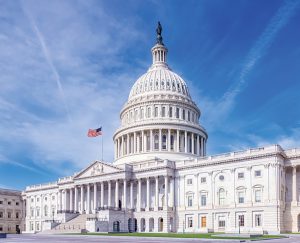Federal Laws Involving Prostitution and Human Trafficking
While prostitution is not explicitly illegal under federal law, many behaviors involving paid sex have been federally criminalized, primarily in three arenas:
First, paid sexual activity that involves force, fraud, coercion, or minors is federally regulated. The Trafficking Victims Protection Re-Authorization Act (TVPRA) of 2005 defined all acts of commercial sex with a minor as human trafficking plus any commercial sex with an adult if "force, fraud, or coercion" can be proven.
Since the first TVPA in 2001 that codified human trafficking into prostitution, we have started seeing multimillion-dollar interagency stings where municipal, county, and federal agencies work together (and get paid) to conduct sweeps and raids, such as Operation Cross Country. While the legislative intent may have been noble, the rescue industry that has arisen often does more harm than good and certainly is immensely profitable to those who participate in these initiatives.
Second, SESTA/FOSTA is a new federal law that was passed by Congress on March 21, 2018, and signed into law by President Trump on April 11, 2018. It does the following:
* States the explicit congressional intent that the Communications Decency Act (CDA) Section 230 was not intended to shield websites that unlawfully promote or facilitate prostitution from legal liability and amends CDA Section 230(e) to add that nothing in this section shall be construed to limit any civil or criminal charges against websites in violation of federal or state law AND
* Amends Chapter 117 of Title 18 USC 2421A to include the crime of promotion or facilitation and reckless disregard of sex trafficking to include interactive computer services (websites).
What that means is that websites can be sued pursuant to civil or criminal law if the content on their site violates the law. Previously, CDA 230 effectually shielded third party sites from being liable for content posted.
The initial practical impact has been self-censoring from within the tech industry to ensure they will not be held liable for content online. This has had the perverse effect of creating heightened economic desperation for people in the sex industry. In many instances, websites where sex workers advertised their services, screened clients for safety, and arranged co-working situations have closed. In other instances, sex workers have limited their online advertising as a result of a climate of fear.
As a result, there has been an increase in street-based sex work, as reported by sex workers and defense attorneys who represent them. Further, rather than assisting the fight against human trafficking, this law has severed access to online material that could aid in building a case against traffickers. Websites that used to cooperate with law enforcement are no longer operable, and it has fostered an environment of fear and the creation of underground websites that have little to no accountability.
Third, crossing state lines (including by phone/email) for the purpose of commercial sexual exchange can trigger federal jurisdiction but is selectively enforced. The Travel Act, Mann Act, RICO, conspiracy to commit prostitution, and other legal mechanisms are used.
In 2002, then-Attorney General John Ashcroft led a crusade to arrest over 30 people under the guise of “conspiracy to commit prostitution,” utilizing the term conspiracy to claim federal jurisdiction. One of the people arrested was the late Robyn Few, who became a national leader in the sex workers’ rights movement. The CEO of Rentboy.com and various employees of the adult site for male escorts were indicted on various federal crimes. The Rentboy CEO pled guilty to promoting prostitution, but in an interesting legal twist, the judge in the case acknowledged that Rentboy was indeed providing a safer vetted platform for sex work, stating: “The very thing that was illegal … it also did a lot of good.”
Federal Laws, Their Effects, and Interpretations
FEDERAL LAWS, THEIR EFFECTS, AND INTERPRETATIONS

DSW drafted and submitted to a federal CA court a spirited amicus brief that challenges the constitutionality of the devastating SESTA/FOSTA law. This “friend of the court” brief was cosigned by an impressive array of organizations, including Sex Workers Project, National Coalition for Sexual Freedom, Brooklyn Defender Services, St. James Infirmary, and other allies. (1/20/2019)
Trafficking Victims Protection Re-Authorization Act (federal law, most recent reauthorization 3/7/2013)
SESTA/FOSTA (federal law enacted on 4/11/2018)
Analysis of SESTA/FOSTA (4/18/2018)
Failed lawsuit challenging constitutionality of prostitution laws (appeal filed 1/17/2018)
Failed lawsuit challenging SESTA/FOSTA (dismissed 9/24/2018)
DOJ opposes SESTA/FOSTA (2/27/2018)
House Passes ‘Anti Sex-Trafficking’ Bill Opposed by Both DOJ and Trafficking Survivors (2/28/2018)
Beyond Strange Bedfellows: How the “War on Trafficking” Was Made to Unite the Left and Right (Summer 2018)
Owner of Rentboy is Sentenced to Six Months in Prison (8/2/2017)
